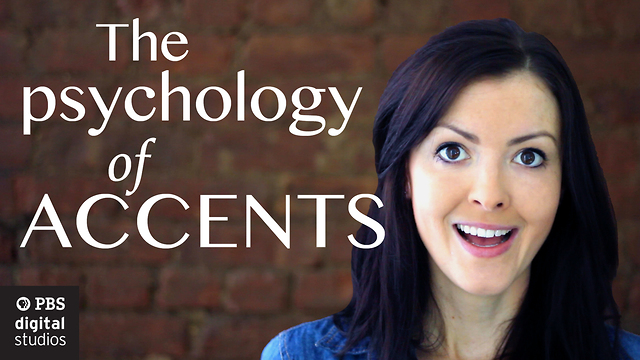Premium Only Content

Watch This Video And Discover The Psychology Behind The Accents
American college students and Tamil speakers in India were given the same unusual task: to connect two meaningless words to two irregular shapes. The remarkable result was that more than 95% of people provided the same answer. The words in question were “buba” and “kiki” and the shapes were random drawings of closed lines, one of them round-edged and the other pointy. The people associated the round-shaped line with the word “buba” and the pointy one to “kiki”.
The results of the experiment indicate that we can draw meaning from where there is none. Even when we are talking to someone in the same language, our body language, tone, pitch and accent convey information beyond what we tell.
What about accents? We all have it, although no one seems to notice their own. Accents develop because people who live in close proximity share the way of speaking, and we have our own accent bias. Studies have shown that even one-year-old babies have a preference for the sounds of the language spoken at home. But why does the English speaking world have so many accents in the first place? After colonizing territories on all world continents the descendants of the English must have lost the English accent at some point and developed their local way of speaking. During the period of 200 years since the first settlement to the invention of sound records, accents have changed and even developed tendencies peculiar to a geographical area: the British non-rhetoric (inaudible) vs. the American rhetoric (hard) “r”.
The way we talk conveys information about our level of education, ethnicity, socio-economic status, maybe not always accurate but it can affect people’s perceptions. Especially about credibility: people with accent are more likely to be disbelieved, and the heavier the accent the less believable they are perceived to be. Also, people are more likely to rate a suspect as guilty if they have a regional accent vs. a London accent. However, we all have a bias towards our own accent – we like it because it belongs to our social group.
-
 4:00
4:00
PBS_Braincraft
6 years agoS4 Ep9: What If We Were All Optimists?
18.3K -
 0:25
0:25
WFTX
4 years agoCommunity video watch partnership
1.3K1 -
 1:19
1:19
sarah2020
4 years ago $0.36 earnedWatch Video Tell Story
1.17K1 -
 12:16
12:16
johnson2
4 years agoCrossing Souls Official Behind the Scenes Video
911 -
 3:12
3:12
WPTV
4 years agoWatch 'Unemployment Freestyle' music video
553 -
 LIVE
LIVE
Quite Frankly
7 hours ago"Satanic Digital Threat & The DOJ Crackdown" ft BX Investigates 5/7/25
766 watching -
 LIVE
LIVE
The Mike Schwartz Show
4 hours agoTHE MIKE SCHWARTZ SHOW with DR. MICHAEL J SCHWARTZ
317 watching -
 1:13:45
1:13:45
Kim Iversen
3 hours ago“They’re Coming for Your Kids”: Inside the 764 Cult the FBI Can No Longer Ignore
121K38 -
 1:34:30
1:34:30
Redacted News
4 hours agoIs this World War 3? India and Pakistan are now at war, Pakistan vows massive response | Redacted
133K83 -
 1:25:41
1:25:41
vivafrei
5 hours agoAhsli Babbitt $30 Million Settlement! Missing Children in Canada? Bartsool Scandal & MORE! Viva Frei
113K43